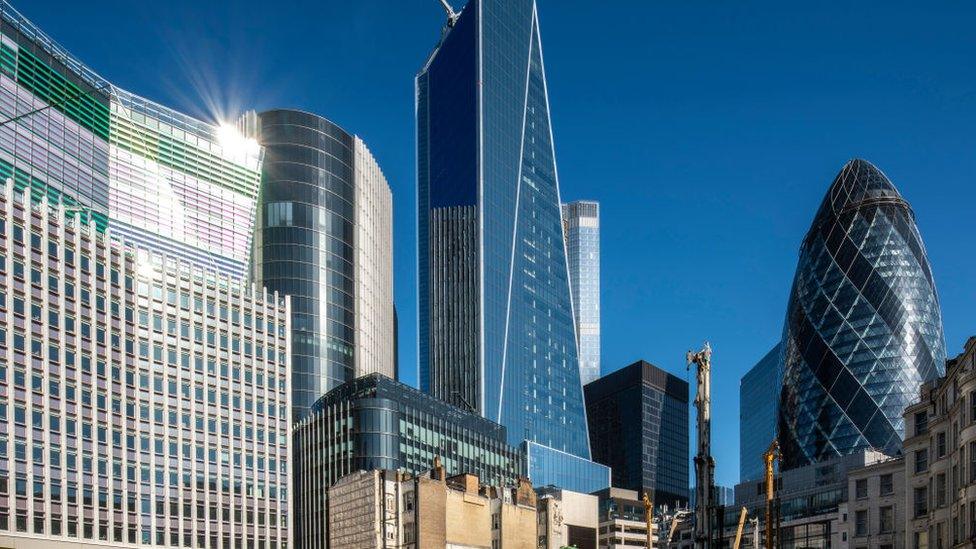Climate change: Big polluters set out £30bn plan to cut emissions
- Published
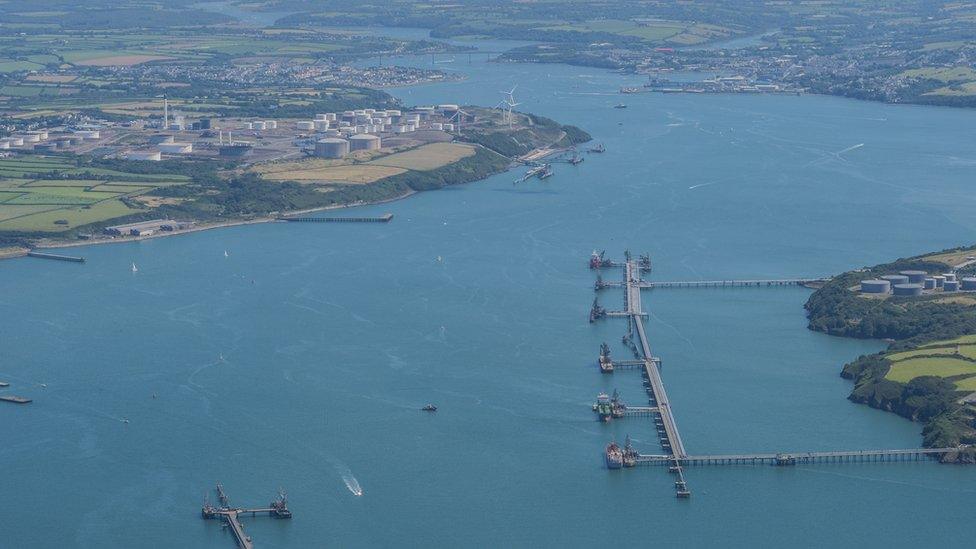
Oil refineries and a power station at Milford Haven are among the industries that make south Wales the UK's second-biggest carbon emitter
Some of Wales' biggest greenhouse gas-emitting firms have set out a £30bn plan to effectively cut their carbon emissions completely.
About 40 bodies in south Wales want to reach net zero by 2040 and lower Wales' CO2 emissions by 40%.
The South Wales Industrial Cluster (Swic), external claims the plan will safeguard more than 100,000 jobs, but will require £30bn of investment.
It is the result of a two-year, £40m collaborative project.
South Wales is currently the second-biggest polluting region in the UK due to its heavy industry.
The group, made up of steelworks, oil refineries, chemical plants, ports, universities and local authorities in the region, said a greener electricity grid and hydrogen and carbon capture infrastructure was urgently needed.
The plan, it is claimed, could also "unlock" decarbonisation for smaller businesses and homes.
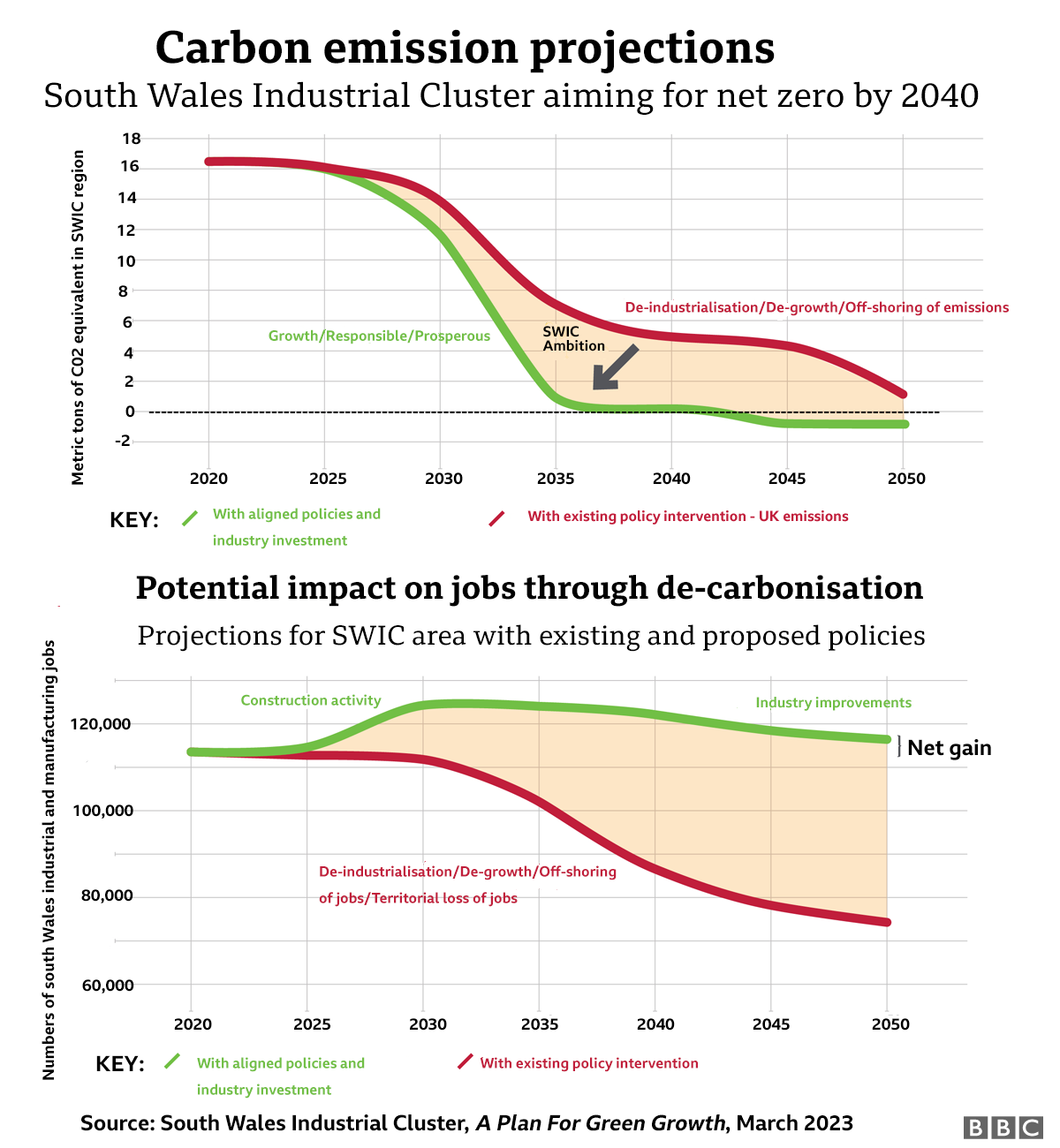
The Swic commissioned a report o, externaln how to to effectively cut their carbon emissions completely in less than two decades.
Chris Williams, head of industrial decarbonisation at Industry Wales, called the report a "step-by-step roadmap for the decarbonisation of south Wales industry and the infrastructure required to achieve net zero".
"Our industries need a solid plan, backed by supportive policies to enable them to carry out their own individual decarbonisation journeys," he added.
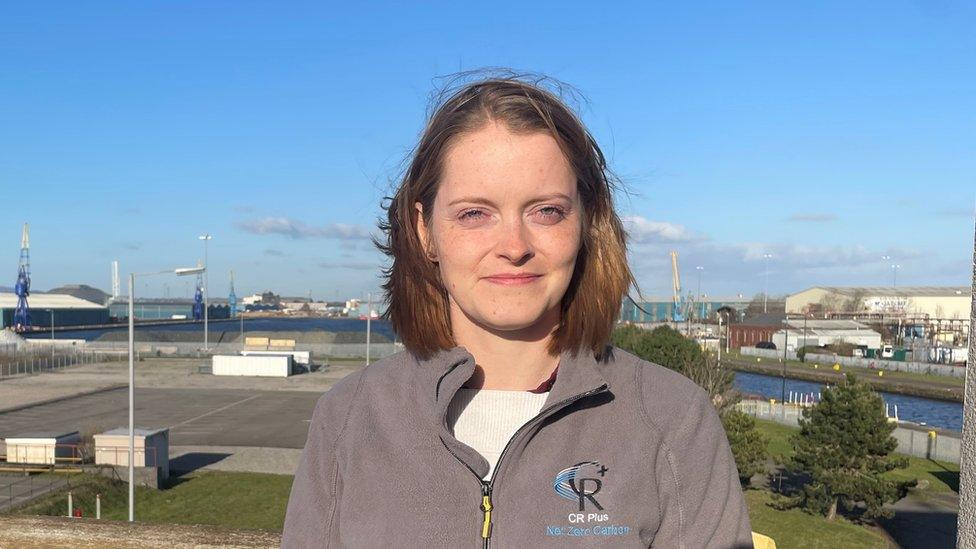
Decarbonising major industry would create the infrastructure to make homes and smaller businesses green as well, says Flora Davies
As well as greener infrastructure the report called for more competitive energy prices in the UK.
The bid to create a freeport in south-west Wales is also crucial to the plan.
According to project manager Flora Davies, from CR Plus consultants, external, decarbonising industry may allow more of our homes to become net zero in future too.
"By decarbonising industry in the UK it unlocks lots of opportunities for other organisations and homes to decarbonise as well by setting up the infrastructure," she added.
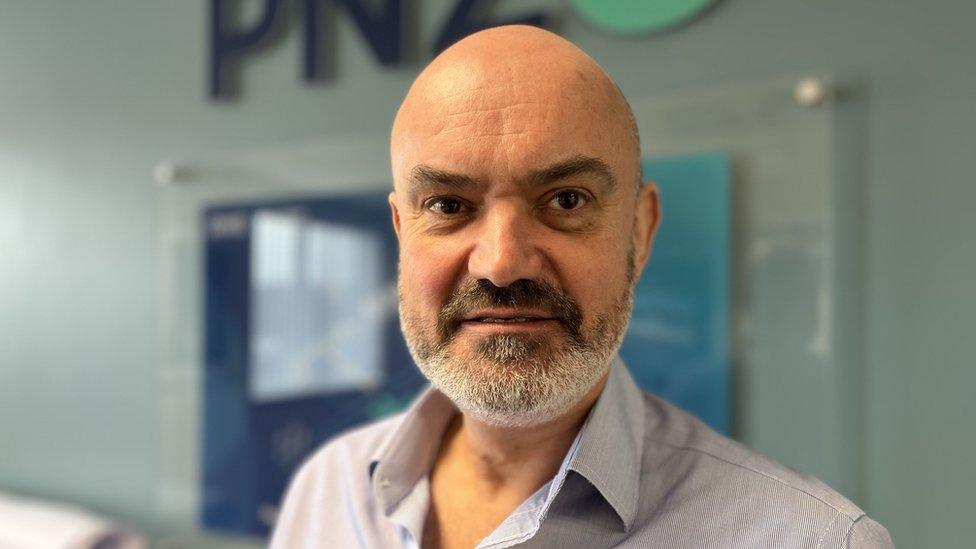
South Wales faces a choice: close down industries or find a way to make them net zero says, RWE's Richard Little
RWE, which runs Pembroke Power Station, has big plans for reaching net zero, including green and blue hydrogen projects, carbon capture and storage as well as battery storage powered by proposed floating offshore wind farms off the Pembrokeshire coast.
Richard Little, director of RWE's Pembroke Net Zero Centre, says there are two ways to reach net zero.
"We can decarbonise south Wales by closing all this industry," he said.
"Or you can get properly behind the creation of the floating wind, the distribution - as in the grid capability - to export that power from south Wales and the pipework infrastructure to capture CO2 and to distribute hydrogen.
"That allows you to not only preserve the industry we've got but to actually create a green industry opportunity for south Wales.
"So you actually end up reaching your net target quicker and without losing your industrial jobs."
Capturing carbon
ROCKWOOL, which has a plant in Bridgend and employs 500 people across the UK, melts volcanic rock at over 1,000C (1832F) to make stone wool insulation for homes and buildings.
The product may be good for the environment, but the process of making it is very energy intensive.
They have already been piloting technology alongside Swansea University to try to capture the carbon emitted during production.
The firm is also looking at decarbonising its fleet of distribution lorries and recycling its products.
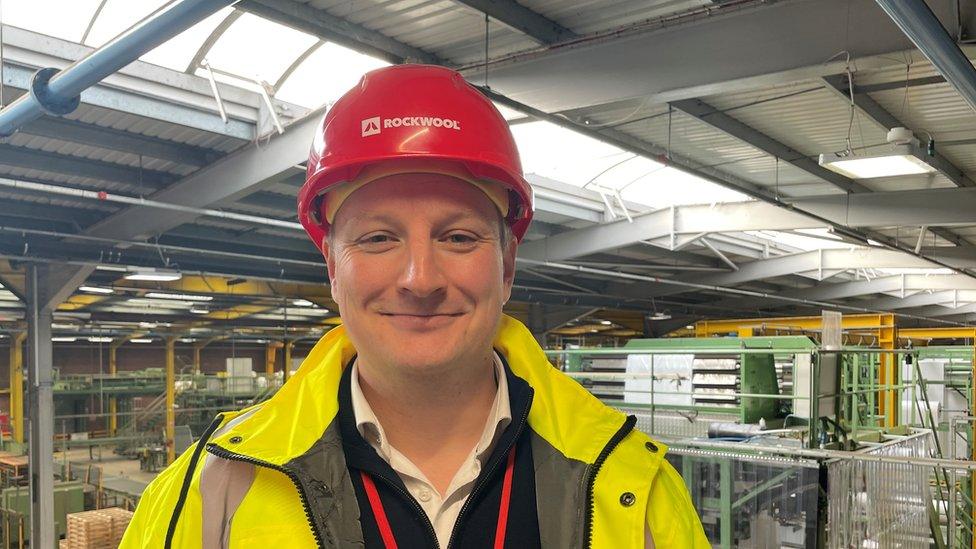
Companies "don't have a choice" on decarbonisation by 2050, says Nick Wilson, of ROCKWOOL
Nick Wilson, the managing director of ROCKWOOL UK, said: "If we don't decarbonise, it puts at risk our future expansion, our growth, and the investment that we are putting into this area.
"But if you look at the decarbonisation targets by 2050, we don't have a choice. It's something we take very seriously as a business.
"The carbon capture technology we're working on with Swic is really important but it's not the only solution, we're also looking at hydrogen, we're looking at solar, we're looking at biogas for our haulage fleets... decarbonisation is an end-to-end process."
Welsh Secretary David TC Davies said: "[The] UK government is pleased to fund projects like the South Wales Industrial Cluster that bring together industry to develop pathways to decarbonisation.
"We want to make sure the economy of Wales is fit for the future, providing skilled jobs, and driving prosperity alongside achieving our net zero targets.
"We look forward to working with partners and stakeholders to help us achieve these goals."
Wales' Economy Minister Vaughan Gething added: "Today marks an important opportunity to recognise the work and commend all those involved in delivery of the South Wales Industrial Cluster Plan, and I look forward to learning more about their findings."
- Published6 January 2023
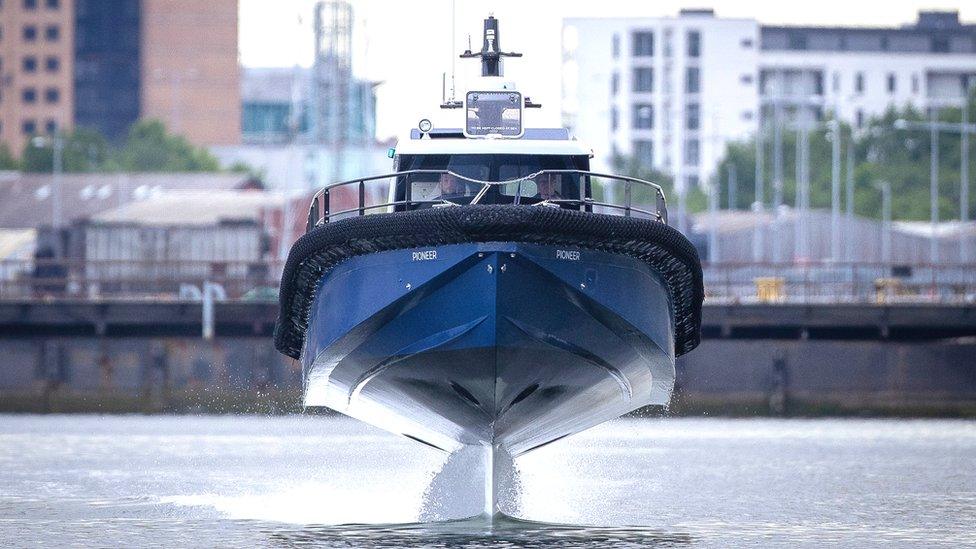
- Published4 January 2023
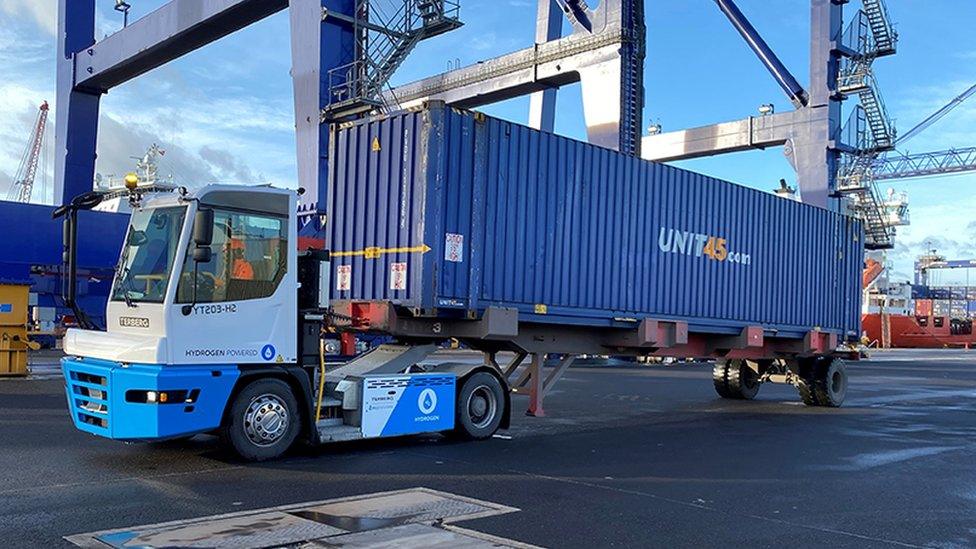
- Published23 January 2023
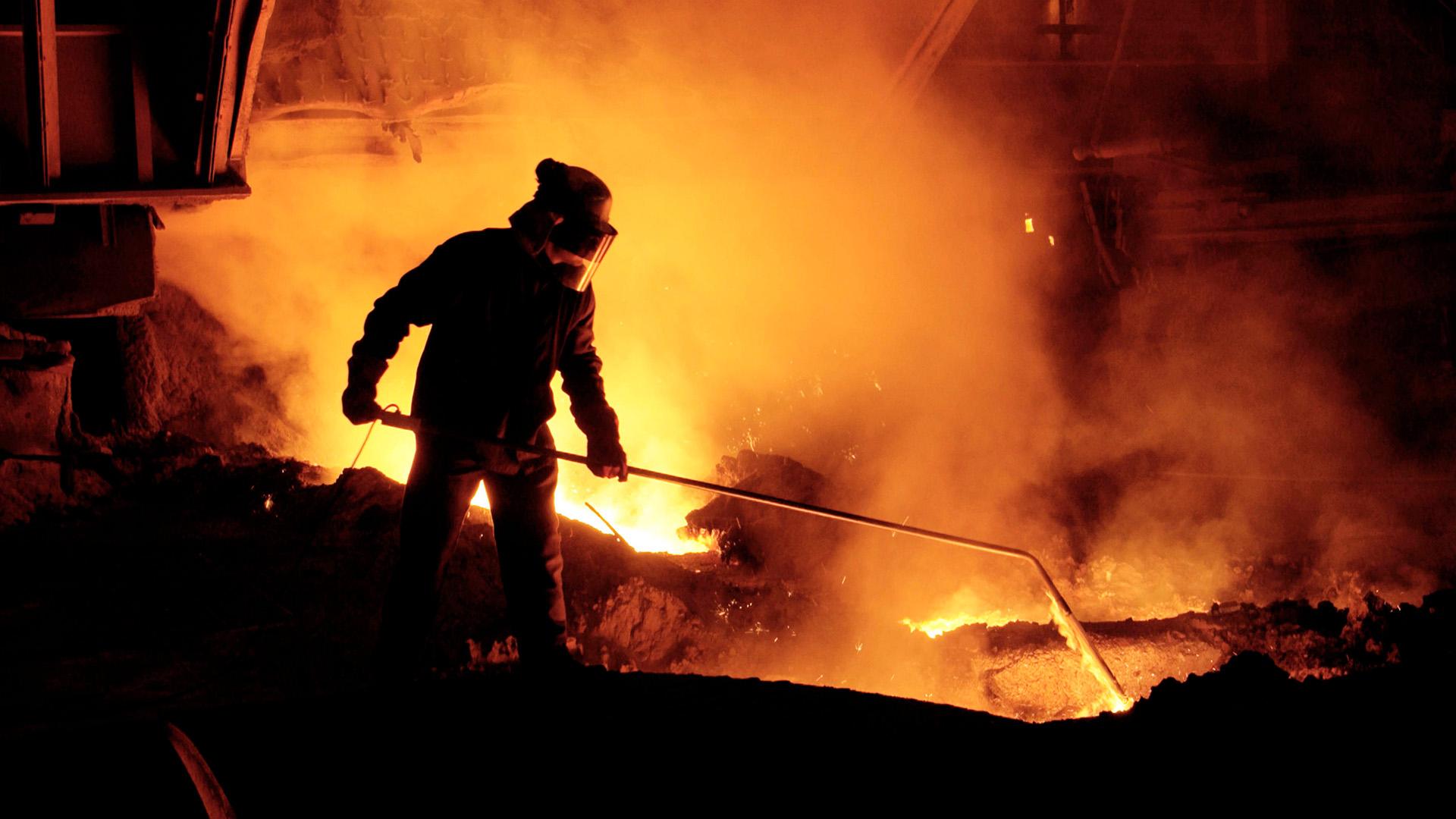
- Published5 November 2022
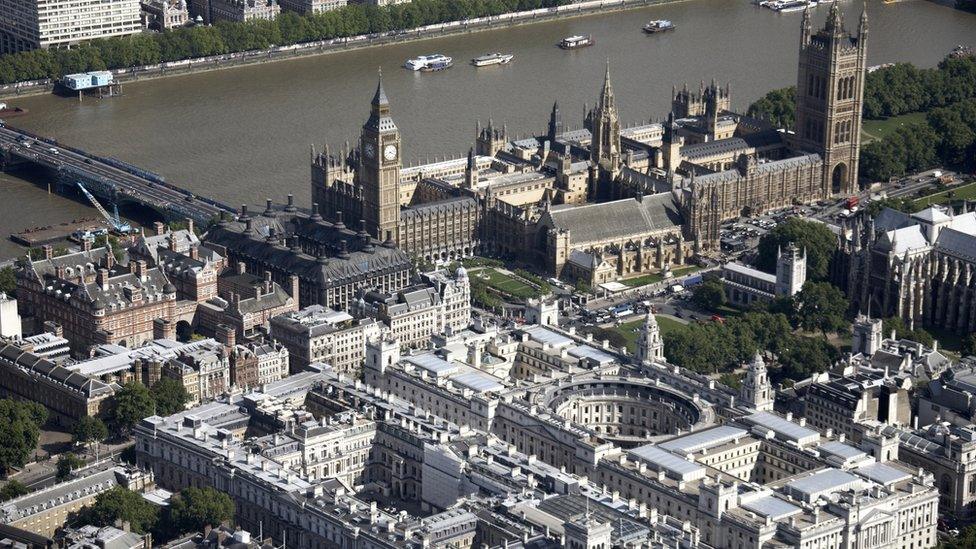
- Published1 June 2022
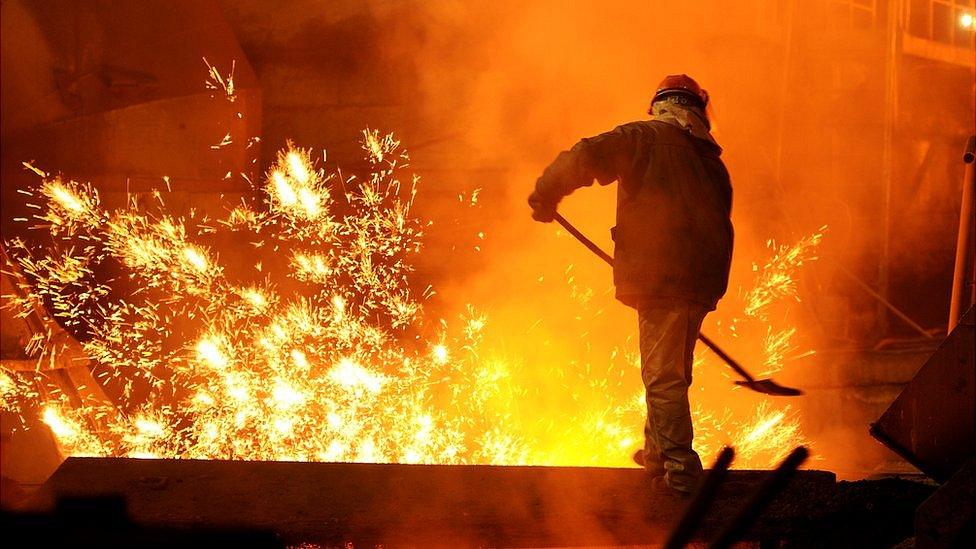
- Published25 October 2021
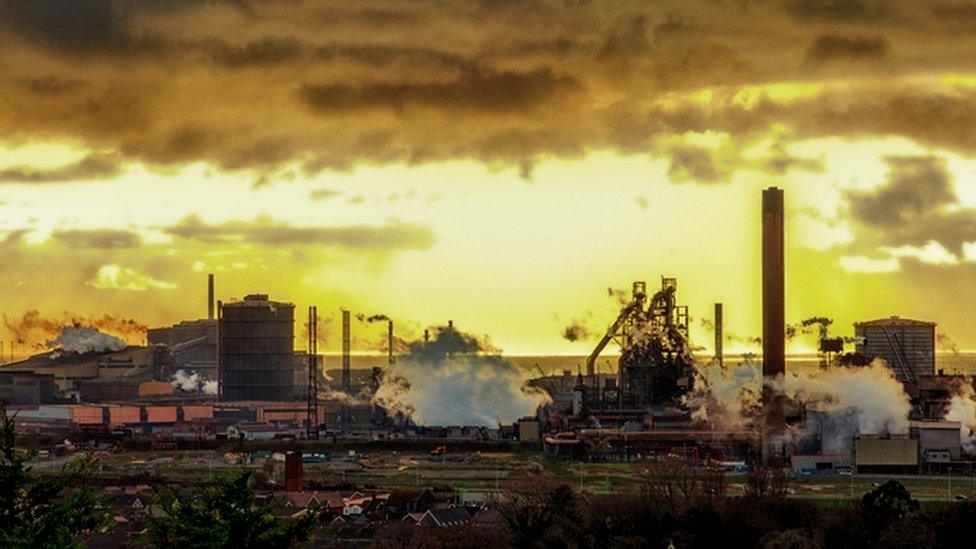
- Published22 July 2022
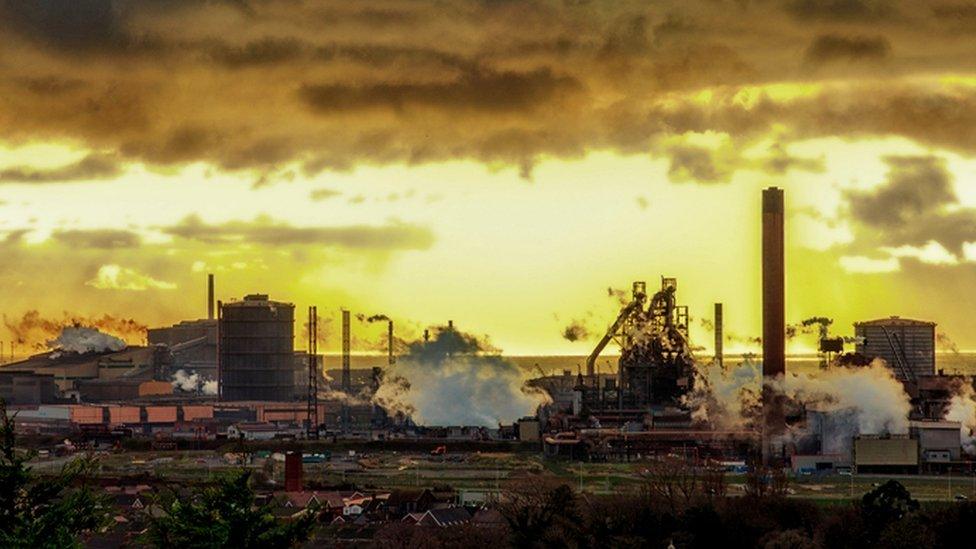
- Published19 October 2021
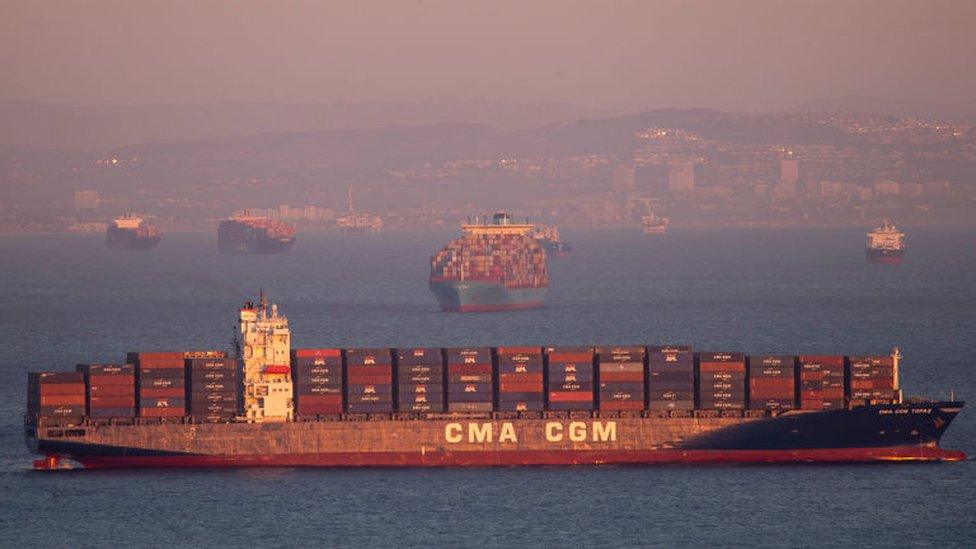
- Published15 April 2021
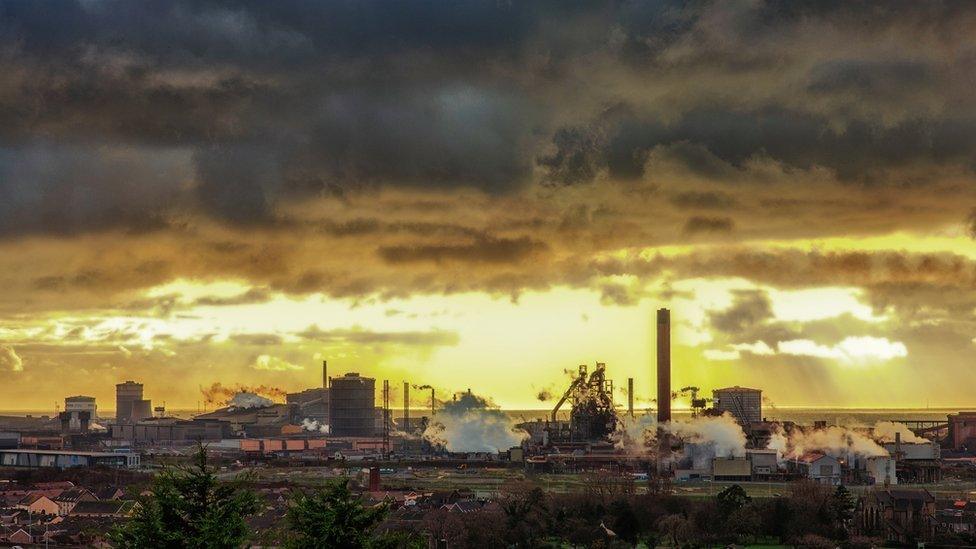
- Published17 March 2021
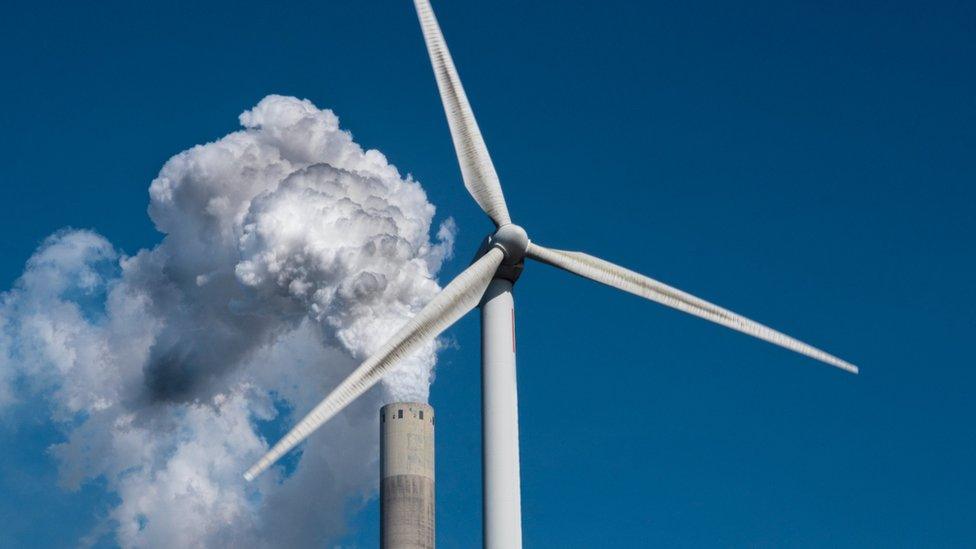
- Published3 November 2021
